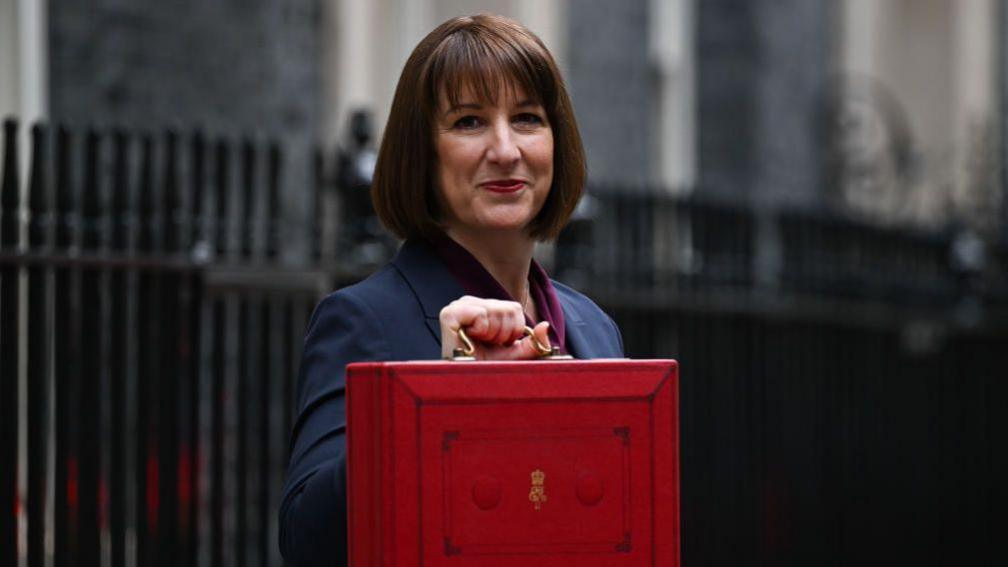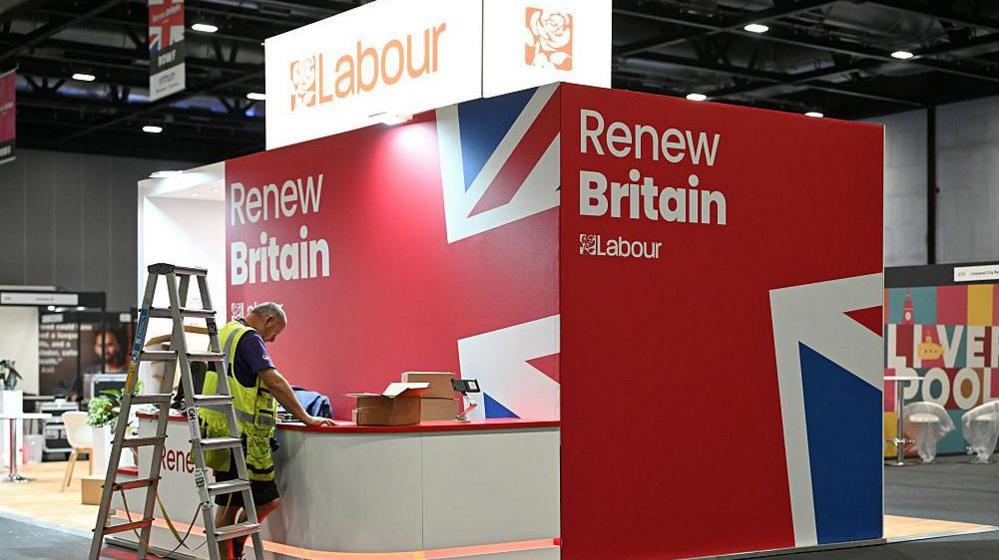What could this week's budget mean for Kent?

Kent businesses want to see targeted support from the chancellor. including VAT relief for hospitality and hairdressing
- Published
Christmas lights may be twinkling across high streets from Maidstone to Margate, but in Westminster the mood is far from festive.
Instead, it is unmistakably lobbying season: that curious time of year, just before a major budget, when receptions, breakfast briefings and evening drinks fill the diaries of MPs and ministers.
Every sector from tech to tourism, farmers to finance has descended on the capital with one purpose: to turn political heads and apply pressure to the Treasury.
A Treasury spokesperson said: "We have been clear on the need to kickstart economic growth built on stability because it is working people who pay the price when governments play fast and loose with the public finances."
What Kent businesses are asking for?
This year, with economic headwinds still blowing and political space narrowing, the stakes are higher than usual. and nowhere is that tension felt more sharply than among Kent's business community, which now looks to this week's Budget with a mixture of apprehension and hope.
At a recent event hosted by the Kent Business Alliance, local business leaders were unusually aligned in their priorities.
Across the room, the topic that kept resurfacing was targeted VAT relief for smaller businesses.
Owners of independent shops, cafés, small manufacturers and service firms all argued that this measure could offer crucial breathing space as they absorb a series of cost increases introduced over the past two years.
Rises in National Insurance and the National Living Wage, both welcomed in principle, have added to payroll pressures.
Meanwhile, energy prices and supply-chain costs remain high. Business leaders said that even modest relief on VAT would help offset these pressures and give firms more flexibility to invest, hire and plan ahead.
In Kent, where the economy relies heavily on small business, hospitality and agriculture, the need for targeted support is especially pronounced.
Inflation's ongoing grip
Despite national headlines about easing inflation, the businesses on Kent's high streets and rural lanes say the reality feels very different.
Prices for energy, imports and raw materials remain stubbornly high. No sector has escaped unscathed, but farmers in particular say the pressures are still mounting.
Issues raised during the last Budget, especially around inheritance tax changes which farmers warn could lead to labour shortages and food security issues, still remain unresolved.
Farmers warn that without clearer guidance and financial certainty, Kent's agricultural backbone risks becoming increasingly fragile.
Taken together, these concerns underline why this week's Budget is shaping up to be one of the most challenging in recent memory, not just for the government, but for the businesses waiting anxiously for a sign of relief.

Inflation has marginally dropped, however for many Kent businesses it hasn't led to increased consumer confidence
Tight political corner
Complicating the task for Chancellor Rachel Reeves is the increasingly narrow political corridor her party must navigate. Labour has, critics argue, boxed itself into a corner on several key welfare and fiscal decisions.
The U-turn on winter fuel allowances created political turbulence that has yet to fully settle. The decision not to reform Personal independence payments, despite earlier suggestions of change, has attracted criticism from opposition parties who urge reforms of welfare spending are vital to bringing down government borrowing. However MP's, including East Thanet's Polly Billington, joined a list of more than 100 Labour members who warn against making savings at the expense of those receiving benefits.
Added to this is growing pressure within Labour's own ranks to reconsider the two-child benefits cap, a move that, while morally compelling to many, carries significant financial implications. The Canterbury MP Rosie Duffield is one of those opposed to the two-child benefits cap saying it disproportionately affects women and leaves children in poverty.
All of this occurs against the backdrop of what the treasury estimates is a £30bn black hole that Reeves must attempt to fill without undermining market confidence or inflicting further hardship on households and businesses.
What to watch for on Budget day
For Kent's business community, the Budget will be judged on whether it delivers practical relief: targeted VAT cuts, measures to cushion rising labour costs and meaningful steps to ease inflationary burdens.
As the Christmas lights shine across Kent towns, businesses are hoping that the glow reaches Westminster and that this Budget finally shines some much-needed light back on them.
"For too many working families our economy still feels stuck with rising inflation and bills a struggle for many. The Chancellor is set to deliver a Budget that makes the fair choices to deliver on the country's priorities to cut NHS waiting lists, cut our debt and borrowing and cut the cost of living."
A Treasury spokesperson said: "For too many working families our economy still feels stuck with rising inflation and bills a struggle for many.
"The chancellor is set to deliver a Budget that makes the fair choices to deliver on the country's priorities to cut NHS waiting lists, cut our debt and borrowing and cut the cost of living."
Follow BBC Kent on Facebook, external, on X, external, and on Instagram, external. Send your story ideas to southeasttoday@bbc.co.uk, external or WhatsApp us on 08081 002250.
Related topics
- Published30 September

- Published27 June

- Published26 March

- Published26 June
